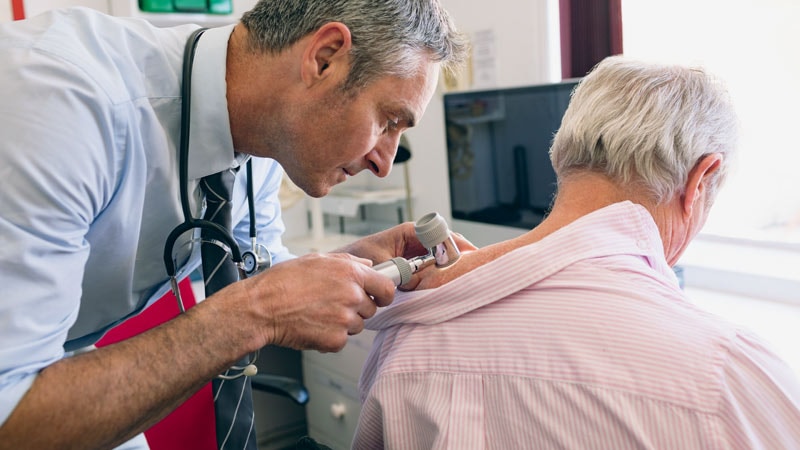Advancements in Skin Cancer Diagnosis Technologies
แนวคิดหลัก
Advancements in skin cancer diagnosis technologies are improving early detection and reducing unnecessary biopsies.
บทคัดย่อ
The content discusses the advancements in skin cancer diagnosis technologies presented by Jonathan Ungar, MD, at the Mount Sinai Winter Symposium. Key highlights include:
Importance of early detection in reducing morbidity and mortality from melanoma.
Challenges with skin cancer screening and the gold standard of skin biopsy.
Introduction of new technologies like VECTRA WB180/360 systems and Nevisense EIS device.
Benefits of electrical impedance spectroscopy (EIS) devices and optical coherence tomography (OCT) in skin cancer detection.
Reflectance confocal microscopy (RCF) as a tool for diagnosing melanocytic lesions.
The potential of genetic testing in dermatological practice.
New Tools Available to Help Diagnose Skin Cancer
สถิติ
The 5-year overall survival rate (OS) for patients with melanoma is roughly 92%.
Survival rate falls to 65% with lymph node involvement and 25% when the disease spreads to other organs.
Nevisense EIS device has a sensitivity of 96.6% and a Negative Predictive Value (NPV) of 98.2% for melanoma.
คำพูด
"Several new technologies have arisen that can improve diagnosis and monitoring for skin cancer, while at the same time minimizing the need for unnecessary biopsies." - Jonathan Ungar, MD
ข้อมูลเชิงลึกที่สำคัญจาก
by Myles Starr ที่ www.medscape.com 12-03-2023
https://www.medscape.com/viewarticle/999012
สอบถามเพิ่มเติม
How can the integration of advanced technologies like VECTRA WB180/360 systems impact the future of skin cancer diagnosis?
The integration of advanced technologies like the VECTRA WB180/360 systems can significantly impact the future of skin cancer diagnosis by improving accuracy, efficiency, and patient outcomes. These systems provide a non-invasive way to track lesions over time, reducing the need for unnecessary biopsies and minimizing scarring in cosmetically sensitive areas. By utilizing multiple cameras simultaneously and constructing 3D avatars of patients, these systems make it easier for clinicians to analyze dermoscopic changes and make informed decisions about the need for further testing or treatment. Overall, the integration of such technologies can lead to earlier detection, better monitoring, and more personalized care for patients with skin cancer.
What are the potential ethical implications of relying heavily on technology for skin cancer diagnosis?
Relying heavily on technology for skin cancer diagnosis raises several potential ethical implications that need to be carefully considered. One concern is the risk of over-reliance on technology, which could lead to the devaluation of clinical judgment and human expertise in the diagnostic process. There is also the issue of patient autonomy and informed consent, as patients may not fully understand the implications of using advanced technologies for diagnosis. Additionally, there are concerns about data privacy and security, especially when using tools that generate and store sensitive medical information. It is essential for healthcare providers to maintain a balance between the benefits of technology and the ethical considerations surrounding its use in skin cancer diagnosis.
How might the incorporation of genetic testing in dermatological practice change the landscape of skin cancer treatment and prevention?
The incorporation of genetic testing in dermatological practice has the potential to revolutionize the landscape of skin cancer treatment and prevention. By analyzing genetic markers associated with skin cancer risk, clinicians can identify individuals who are predisposed to developing the disease and tailor personalized prevention strategies accordingly. Genetic testing can also help in early detection by identifying high-risk patients who may benefit from more frequent screenings or surveillance. In terms of treatment, genetic testing can guide clinicians in selecting the most effective therapies based on the genetic profile of the tumor, leading to more targeted and successful interventions. Overall, the integration of genetic testing in dermatological practice holds great promise for improving outcomes and advancing precision medicine in the field of skin cancer.
0
